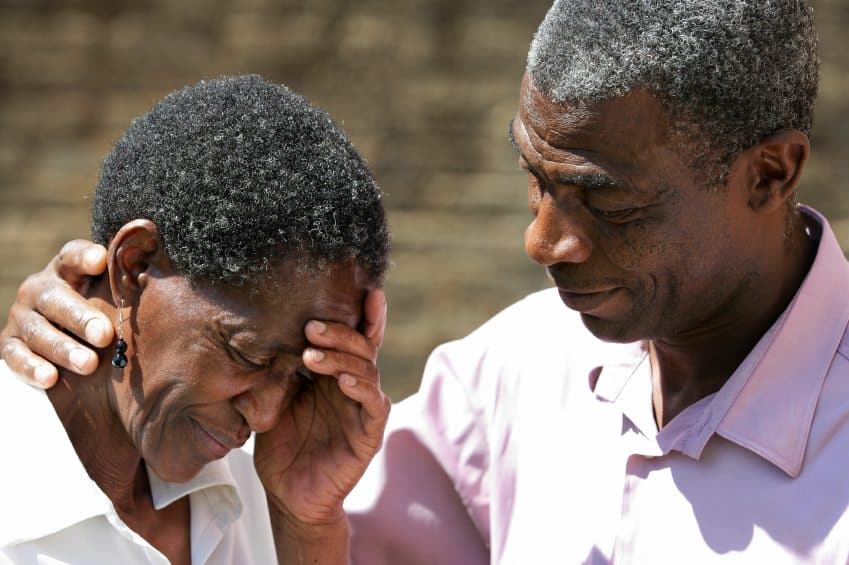
7 Ways Teen Counseling Can Benefit Your Adolescent
7 Ways Teen Counseling Can Benefit Your Adolescent
How to Help Your Teenager
7 Ways Teen Counseling Can Benefit Your Adolescent
7 Ways Teen Counseling Can Benefit Your Adolescent

Adolescence is a pivotal stage of life marked by growth, transformation, and sometimes, intense challenges. For many teens, navigating these years is complicated by pressures from school, peers, and the expectations of adulthood looming on the horizon. Parents and educators often find themselves wondering how to best support young people during these formative years.
Enter teen counseling. Beyond being a safe space for adolescents to share their thoughts and emotions, counseling provides invaluable tools and coping mechanisms that help teens grow into healthier, more resilient adults.
In this blog, we’ll explore seven ways that teen counseling can make a lasting difference in an adolescent’s life, from improving communication to building self-esteem. Whether you’re a parent looking to help your teen or an educator seeking resources, you’ll find reassurance and practical guidance here.
1. Improved Communication Skills
Good communication is at the heart of understanding and connection, and for teenagers, effective communication can be especially challenging. Hormonal changes, peer influences, and internalized emotions often make it hard for teens to express themselves clearly to others.
Counseling sessions help teens develop vital communication skills, such as active listening, articulating their feelings, and expressing themselves respectfully. For example, Emily, a 14-year-old struggling with family conflicts, found her counseling sessions invaluable as she learned how to translate her feelings into words. Over time, her home environment became more harmonious, largely because she and her family started to communicate better.
When teens learn to express themselves effectively, their relationships with parents, peers, and teachers improve significantly.
2. Enhanced Emotional Regulation
Adolescents experience emotions more intensely than any other age group due to their developing brains and fluctuating hormones. It’s no surprise that mood swings, frustration, or anxiety can become overwhelming.
Teen counseling helps young people understand their emotional patterns and teaches them techniques to regulate those feelings. Counselors introduce tools such as mindfulness exercises, relaxation techniques, and cognitive reframing to manage challenging emotions.
Take Sarah, a 15-year-old who struggled with intense anxiety about school. Through her counseling sessions, she learned how to recognize the early signs of anxiety and employ calming techniques like deep breathing and grounding exercises. Today, Sarah describes feeling more in control of her emotions and less overwhelmed by stress.
3. Better Academic Performance
A teen’s mental state often directly affects their academic performance. Anxiety, self-doubt, or difficulty concentrating can hinder their ability to focus and succeed in school. Counseling addresses these underlying challenges, enabling teens to perform better in academic settings.
For instance, Sarah’s coping strategies for anxiety didn’t just help her feel better about herself; they also improved her grades. With fewer emotional roadblocks, she began approaching assignments with more confidence and experienced greater success in school.
Teen counseling ensures that academic hurdles don’t snowball into long-term setbacks.
4. Healthier Relationships
Building strong and healthy relationships during adolescence lays the foundation for fulfilling adult connections. However, boundaries, trust, and conflict resolution don’t come naturally to everyone.
Counseling provides teens with the tools they need to form and nurture positive relationships. This includes addressing issues like bullying, peer pressure, and romantic complications. Michael, a 16-year-old facing persistent bullying, turned to counseling to develop assertiveness skills. With the support of his counselor, he learned how to set boundaries and choose friendships more thoughtfully.
For Michael, counseling not only strengthened his relationships but also boosted his confidence in social settings.
5. Increased Self-Esteem
Low self-esteem can hold teenagers back from achieving their potential. Teens may feel like they’re not enough—not smart enough, attractive enough, or capable enough. It’s tough to watch someone you love wrestle with a distorted self-image.
Therapy for teens works to challenge these limiting beliefs. Counselors provide impartial yet affirming support, encouraging teens to replace negative self-talk with a healthier mindset. They help teens recognize their strengths, celebrate their achievements, and foster a sense of self-worth.
Through counseling, Michael grew to see himself not as a victim of bullying, but as a resilient and capable individual. This sense of empowerment allowed him to approach life with renewed confidence.
6. Coping with Mental Health Challenges
For teens facing mental health challenges such as anxiety, depression, or PTSD, counseling can truly be life-changing. Left unaddressed, these struggles often worsen over time, impacting every aspect of a teen’s life.
Licensed counselors are trained to identify and treat mental health issues, providing teens with the tools they need to cope and recover. Techniques like cognitive-behavioral therapy (CBT) and solution-focused therapy help teens reshape negative thought patterns or behaviors.
Sarah’s case illustrates this perfectly. Her weekly counseling sessions gave her practical ways to work through overwhelming thoughts, ultimately improving her mental and emotional well-being.
7. Development of Problem-Solving Skills
Life is full of challenges, and adolescence is no exception. From managing school deadlines to resolving peer conflicts, teens often feel unprepared to tackle obstacles that arise.
Counseling equips teens with critical problem-solving skills by teaching them how to weigh options, anticipate consequences, and make informed decisions. By practicing these skills in a supportive counseling environment, teens build the confidence to face challenges head-on.
For Emily, who often struggled with family arguments, these newfound skills empowered her to help find solutions instead of perpetuating conflicts. Over time, she became a more active and thoughtful participant in her own life.
Transforming the Teen Years Through Counseling
The teenage years may be challenging, both for adolescents and the adults who care for them. But with the right support, teens can grow into empowered, emotionally intelligent, and resilient individuals. Teen counseling offers a pathway for young people to develop essential life skills, improve their mental health, and build stronger relationships.
If you’re considering counseling for your child or a teen you care about, take the first step today. The benefits are truly life-changing—for both teens and their support network.
Need help finding the right counselor? Contact us to connect with compassionate, experienced professionals who can guide your teen every step of the way.



